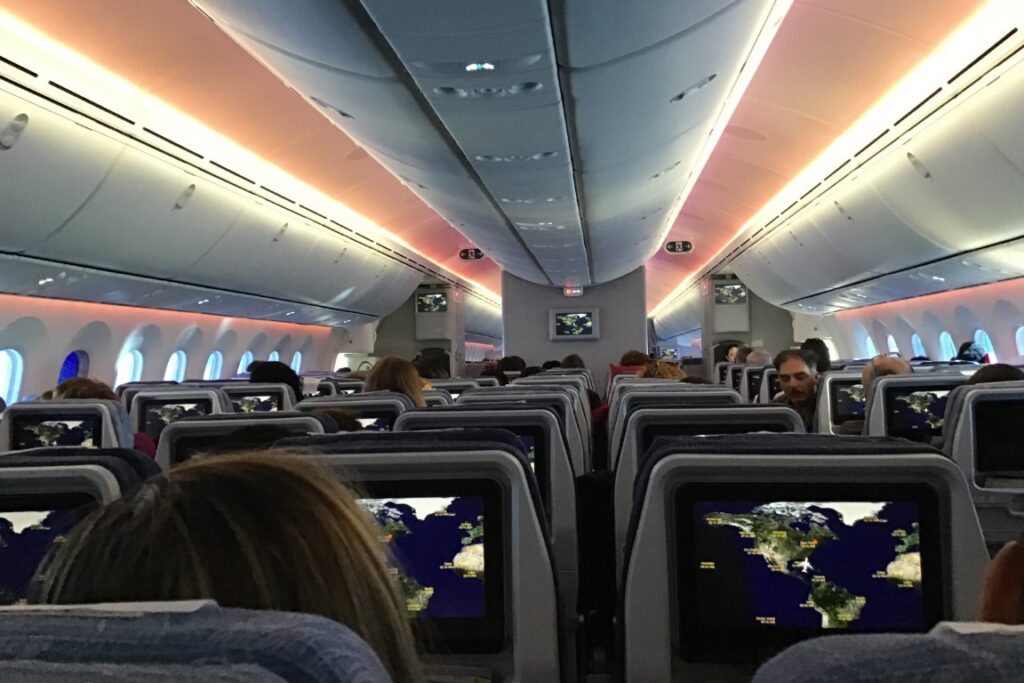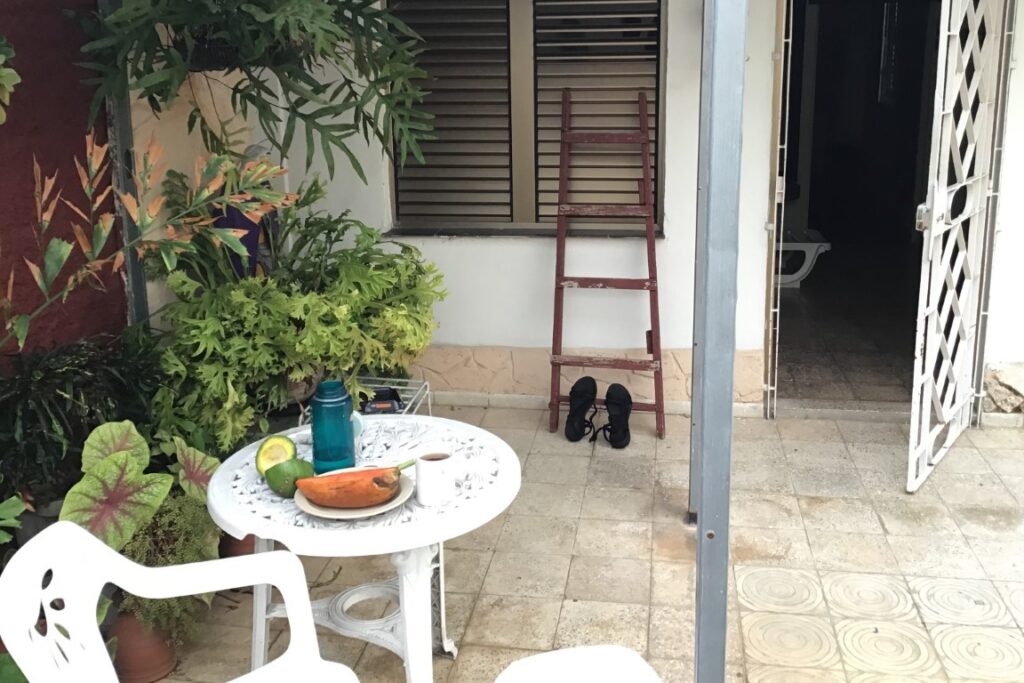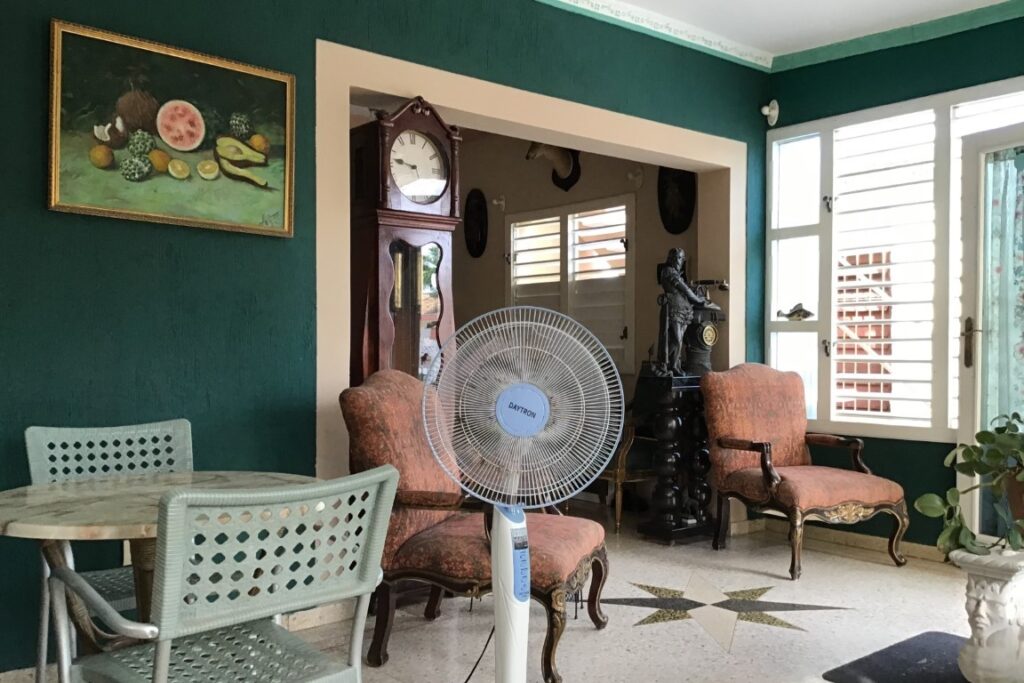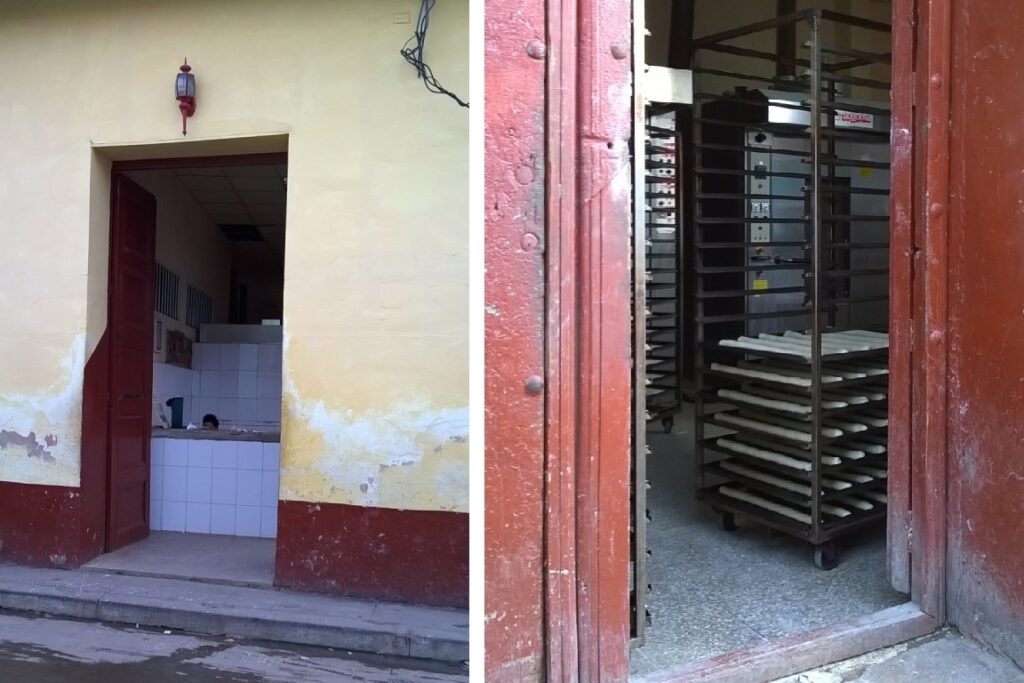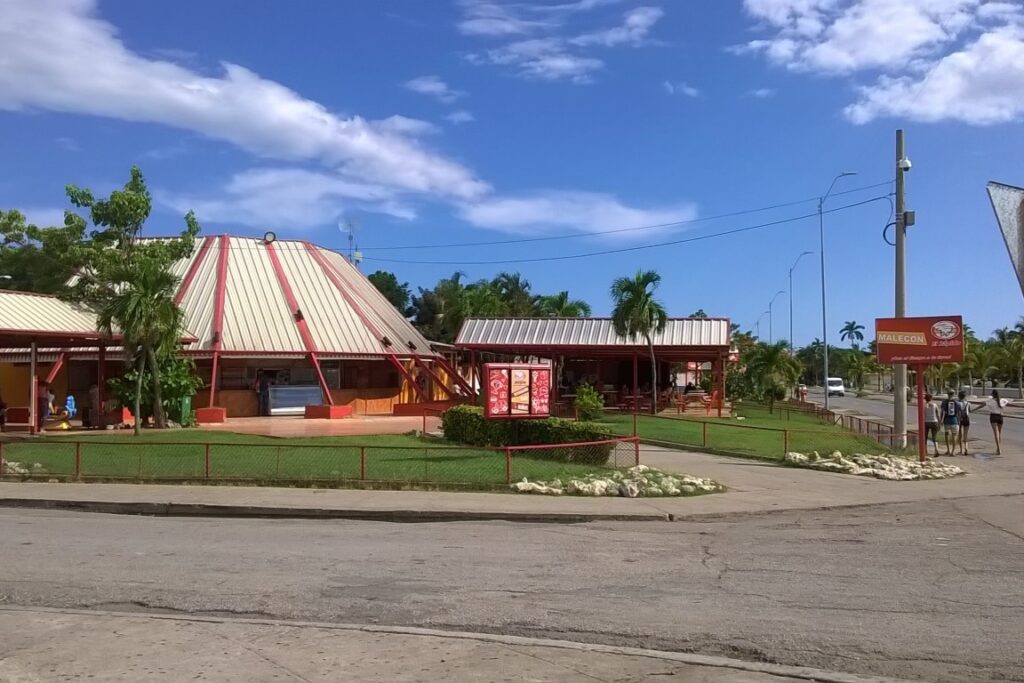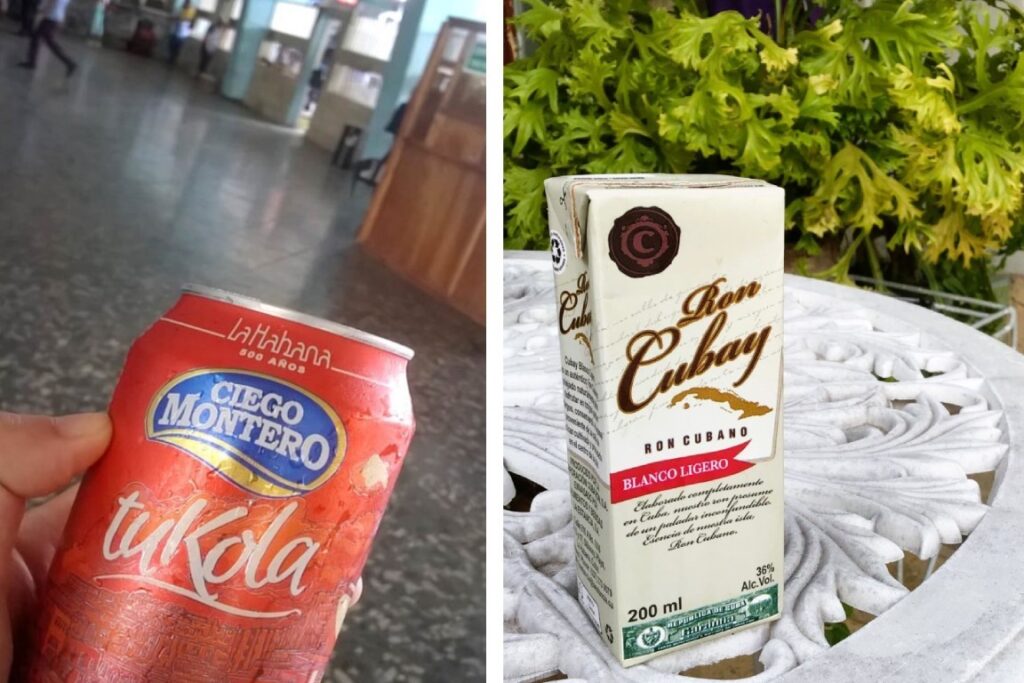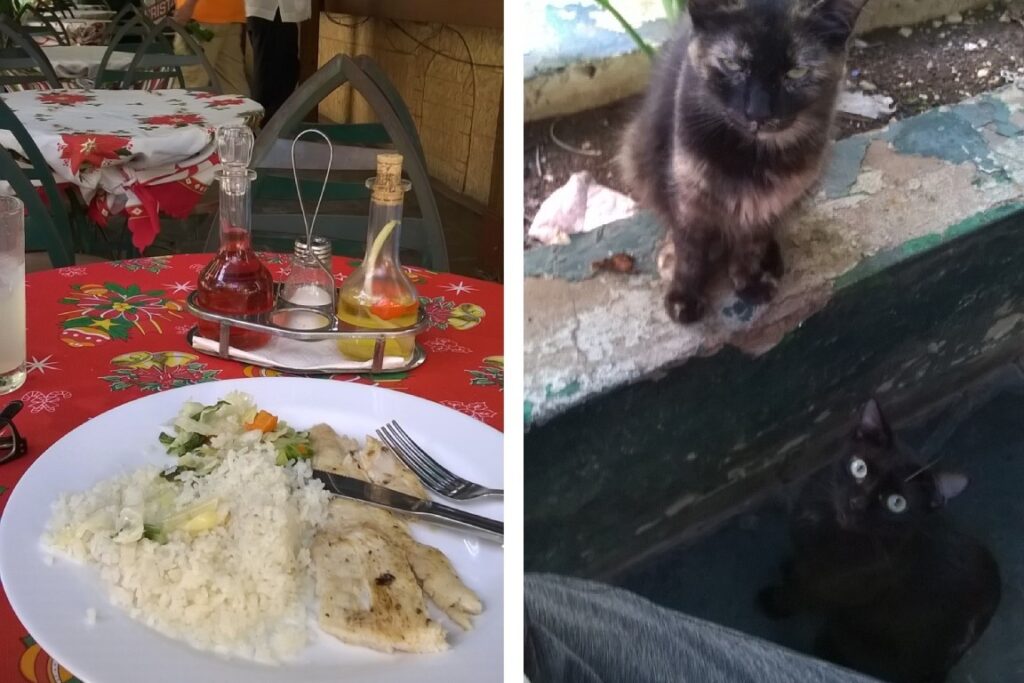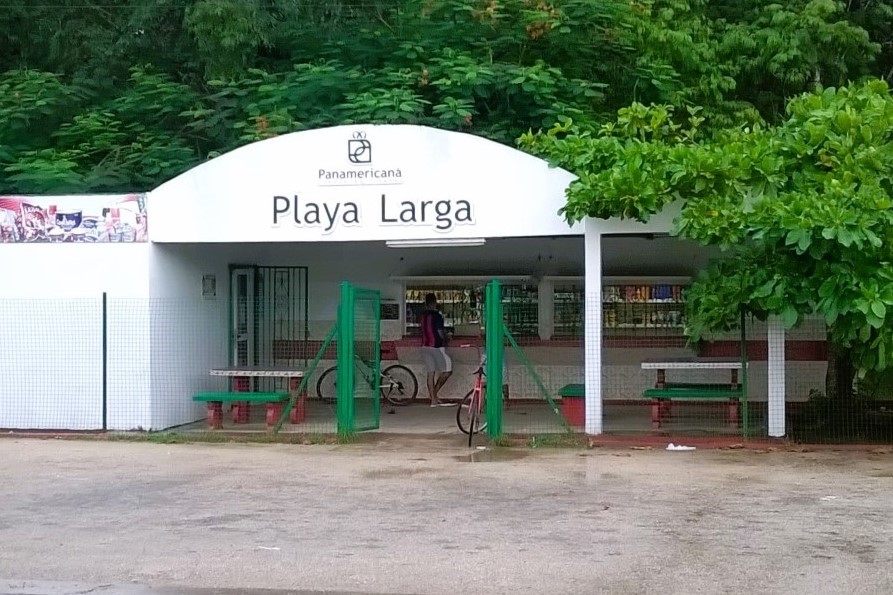I once had a conversation with a Chinese fellow who grew up in the countryside near the Chinese-North Korean border. He mentioned being told that he could go to North Korea anytime he wants, but he simply wouldn’t be able to find food there, even with money. This image stuck with me: the great equalizer of socialism at its most destructive—everyone starves equally.
I had a glimpse of what that would be like when I decided to travel to Cuba solo and freestyle—no plan, no tour, no all-inclusive, no airport pick-up, just a plane ticket and a snorkeling mask.
Typically, when on vacation in a tropical country with a culinary culture, one ends up eating more than the stomach can take. My experience in Cuba was different. Searching for food turned into a treasure hunt, and returning to my rented apartment on an empty stomach became a regular occurrence. Nothing to worry about, though, I had plenty of fat reserves. But it gave me a sour taste of what locals may face on a daily basis.
It all began with a delayed Air China flight landing in Havana after an agonizing hour of flying in circles. As someone who spent six years in China and has fond memories of my people, seeing Chinese flight attendants having a handful with exuberant Cuban passengers midair was quite a treat—a clash between two opposing cultures forcibly unified by an illusory political system played out in front of me. Everything got resolved after the plane landed to the applause of the passengers.
In an empty airport, late at night, I was spotted by Horacio, a taxi driver. With a headache and deaf ears from the depressurizing plane, I didn’t have the stamina to haggle the price, and let him guide me through the exit and to his prized 1950 Chevrolet. It was an extremely uncomfortable yet stylish ride on the bumpy, swervy highways, seatbelt-less, with the windows rolled down to let in the humid air infused with a cocktail of undefined scents.
In Cuba, it feels as if time has frozen in an undefined era. Everything is recovered, reused, and repurposed. The best illustration of this was a freshly opened private bed and breakfast I found in Varadero that resembled a museum where an eccentric old lady’s home had vomited its contents. The dining room, with its high ceiling, featured a longcase pendulum clock, an extravagant chandelier, and two alcoves cut out of dark turquoise walls, illuminating classical-style statues. To furnish this serene space: patio chairs of different styles and laminated tables. The countless knickknacks covering every available surface cause your brain to enter safe mode, blending all details into a landscape of decay and obsolescence.
The unreliable internet being part of the aura of obsolescence, I wondered if my Airbnb host had learned about my delayed arrival. Fortunately, he did, and with the help of my reliable taxi driver, I reached the rooftop apartment of a three-story building in Havana Central. My host was a mechanical engineer who moonlighted as a hotel manager or tourist agent to make a living, a common practice among professional Cubans.
The apartment was separated from the street by a progressively narrowing stairwell. “Watch your head! and your feet!” my host would warn me before leaving me on my own. A succession of gates that required unlocking and relocking at every stage kept the street door at bay. As I glanced down, I noticed a web of ropes starting from each apartment door and leading to the main entrance door’s lock—the ancestor of modern door buzzers.
Navigating among decayed concrete buildings in search of local eateries, fresh markets, and street food in Cuba turned out to be a daunting task. What made it more challenging was the complete absence of recognizable landmarks like commercial signage, advertising, or street window displays. However, thanks to a 2011 law permitting private commerce, restaurants, shops, and cafés were flourishing. With determination, you might find an improvised cantina with a hand-written chalkboard at the entrance, offering coffee, bread, and milk.
As a freestyler, you will come across many government-run cafeterias similar to the fast-food chains of North America, offering fried chicken and sugar-heavy ice cream. Be aware that the customer service in these public restaurants is hit-and-miss, with staff occasionally ignoring patrons if they have other tasks to finish first. They may be amicable if they’re in the mood or if your personality brightens the place, but they won’t waste time on meaningless chats. My apparent tourist status was probably to blame. One thing is certain: the service in Cuba forces you to reconsider your overconsumption habits and sense of entitlement.
Perhaps a positive outcome of the great equalizer, the closed-knit population that relies on cooperation rather than competition, is that when there’s nothing to envy from your neighbour, you seek other forms of contact. Similar to China’s homogeneous population and landmass distribution, the cities are not fragmented by hot neighbourhoods and sinister no-man’s land. From an outsider’s perspective, this creates an urban territory safe for exploration, a rarity in the Americas.
During my trip, I learned to appreciate the street food scene, which mainly consisted of cheese pizza and churros—those sticks of dough coming out of a dye and fried. One of the best experiences was sipping a freshly brewed espresso out of a ceramic cup on the sidewalks of Habana Vieja, prepared by a serene old Cuban and served through a window cut out of a wooden façade. Yet, one doesn’t get strength from fried dough and coffee. I was longing for some proteins and fibre.
After some wandering in the old city, I stumbled upon a local eatery with double the flavour and half the price of tourist hotspots. To top it off, the fish a la plancha and rice and beans went down my bowel without a hitch, despite the suspiciously fast service.
